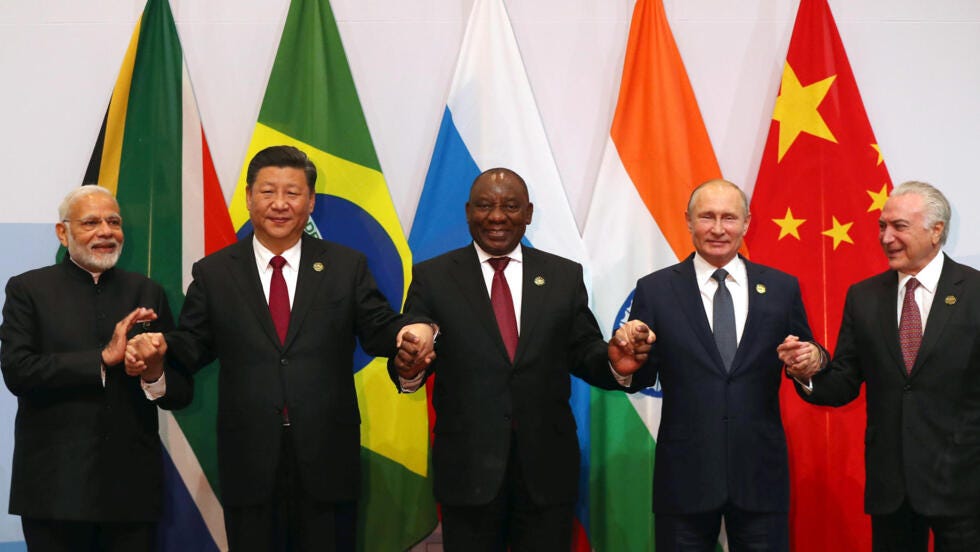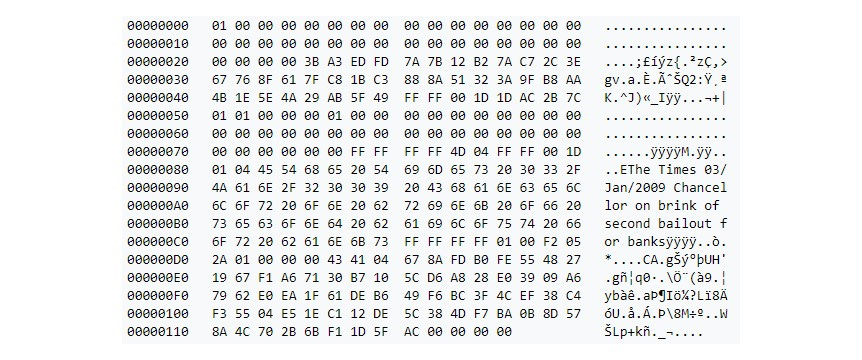The Global Governance Dilemma: Unveiling the Undercurrents of Power and Finance
Whitney Webb's Insight
In a world teetering on the brink of transformative changes, the efforts to establish a system of global governance have sparked unprecedented debate. Central to this discourse is the emerging narrative that posits a false dichotomy: the choice between a unipolar world order, currently dominated by Western powers, and a proposed multipolar framework, ostensibly championed by the BRICS nations—Brazil, Russia, India, China, and South Africa. This narrative, as dissected by the insightful Whitney Webb in her discussion on the evolving dynamics of global power, sheds light on the complexities and inherent contradictions of these times.
Unpacking the Dichotomy: The Unipolar vs. Multipolar World
The crux of the debate centers around governance and control. The unipolar world, characterized by its Western hegemony, is increasingly being challenged by advocates of a multipolar world order. Proponents argue that multipolarity promotes inclusivity and grants a voice to more nations. Yet, as Webb adeptly points out, the seeming differences mask a deeper congruence.
Both the existing and emerging orders appear to be coalescing around similar agendas, notably the Agenda 2030 and the Sustainable Development Goals (SDGs). These initiatives, embraced by both Western entities and the BRICS, suggest that despite the ostensible shift in power dynamics, the underlying objectives remain aligned.
The Role of Financial Titans in Shaping the Future
Significantly, the discourse extends beyond mere geopolitical considerations to encompass the realm of finance and control. Figures like Larry Fink of BlackRock, Jamie Dimon, and others emerge as central architects of the financial landscape, wielding influence that transcends national boundaries and political ideologies. Webb's critique exposes the ulterior motives behind their actions—not the altruistic pursuit of a more inclusive world, but a relentless drive to expand their control over global financial assets.
The introduction of Bitcoin and stablecoins into this conversation highlights the dual-edged nature of technological advancement. On one hand, it represents an unprecedented opportunity for decentralization and empowerment. On the other, as Webb warns, it offers these financial behemoths a new avenue to consolidate power, potentially commandeering a significant portion of the cryptocurrency supply.
The Technocratic Vision: Tokenization and Surveillance
The narrative takes a darker turn as Webb delves into the technocratic agenda underlying the push for global governance. The vision laid out is one of comprehensive tokenization—where every asset, natural or otherwise, is transformed into a tradable digital token. This future, enthusiastically endorsed by the likes of Fink and others, envisions a world where even nature and human beings become commodities in a vast financial marketplace.
This shift towards a technocratic model raises profound questions about privacy, autonomy, and the very essence of human dignity. The specter of a world where everything is surveilled, quantified, and traded looms large, heralding an era of unparalleled control and manipulation by a global elite.
The Path Forward: Resistance and Local Solutions
Amidst this grim prognosis, Webb offers a glimmer of hope. The key to resisting this encroaching dystopia lies not in the ephemeral promises of political saviors but in grassroots action and community resilience. The emphasis shifts to local solutions—building parallel structures that can withstand the pressures of global governance and preserve the fabric of community autonomy.
The Economic Precipice: A Looming Catastrophe
Webb's analysis extends to the economic domain, where she foresees a looming catastrophe fueled by unsustainable fiscal policies, rampant inflation, and the potential collapse of the fiat currency system. The suggestion of transitioning to a Bitcoin standard emerges as a potential lifeline, a way to circumvent the crises precipitated by the reckless actions of central banks and financial institutions.
Conclusion: At the Crossroads of Destiny
As we stand at this crossroads, the questions posed by Whitney Webb's discourse demand reflection. The convergence of global governance agendas, irrespective of their proponents' geographical or political affiliations, signals a unification of purpose that transcends traditional divides. The involvement of financial titans in shaping the future of currency, coupled with the technocratic push for tokenization and surveillance, unveils a vision of the future that is both compelling and cautionary.
The challenge before us is to discern the path that will lead to a world governed by principles of equity, sustainability, and genuine inclusivity, rather than one dominated by a select few. The prospect of everything being controlled and surveilled by those in power raises fundamental questions about the nature of freedom, privacy, and human dignity in the 21st century.
As we ponder the implications of Webb's predictions and analyses, one can't help but wonder about the consequences of a world where everything, including our very selves, is governed, traded, and monitored by an elite few. Will we navigate towards a future that honors the essence of our humanity, or will we drift into an era where the value of everything, including human and natural assets, is determined by their utility in a vast, impersonal financial system?
The answer lies in our collective hands. As we grapple with these unprecedented challenges, the choice
Support Our Work with a Bitcoin Donation
We also offer the opportunity to support our work and help us continue building the Financial Anarchy community. If you would like to contribute, we gratefully accept donations in Bitcoin. Your support will enable us to create more educational content, engage in meaningful activism, and further our mission of challenging the status quo. To donate, please use the following Bitcoin address:
Thank you for joining us on this journey of understanding and change. Together, we can shape a brighter financial future for all.










